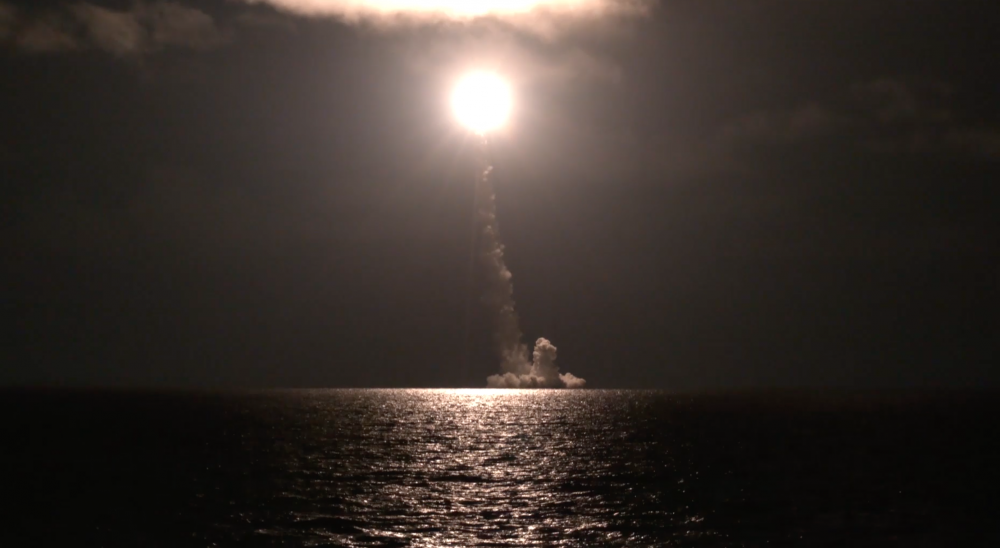Newest Russian submarine launches Bulava missile from White Sea

Firing a ballistic missile is the final test before the submarine will be handed over to the Navy.
It was Sunday morning when the Defense Ministry in Moscow reported that the Imperator Aleksandr III was sailing under the surface in the White Sea and launched a Bulava. A few minutes after breaking the surface in Russia’s northwestern region, the missile hit the designated target at the Kura range on the Kamchatka Peninsula.
The Imperator Aleksandr III (K-554) was launched in December last year from the Sevmash shipyard in Severodvinsk and has since been undergoing state trials at sea and while at berth at the yard.
The submarine is the 7th Borei-class submarine and will likely be transferred to the Navy before New Year. Like the sixth submarine in the class, Generalissimus Suvorov, also the Imperator Aleksandr III will cross under the Arctic ice and sail for Russia’s Pacific Fleet.
Three more subs under construction
Each of the Borei submarines can carry 16 ballistic Bulava missiles, each armed with 4 to 10 nuclear warheads. Three more subs of the class are currently under construction in Severodvinsk, and two more are planned, but no contracts have been signed.
When Russia tested its nuclear deterrence triad on October 25, the only submarine-launched ballistic missile was an older Sineava, fired from the Northern Fleet’s Delta-IV class Tula in the Barents Sea.
According to Sirena, a popular Russian Telegram channel, a Bulava launch was planned for the nuclear exercise, but was canceled at the last minute.
Related stories from around the North:
Canada: CSIS warning Inuit leaders about covert foreign investment in Arctic, documents show, CBC News
Denmark: Danish policy prioritizes low-conflict Arctic amidst Russian tensions, Eye on the Arctic
Iceland: Nordics should aim for common approach to China’s Arctic involvement says report, Eye on the Arctic
Norway: Svalbard’s travails in a changing Arctic, Blog by Marc Lanteigne
Russia: Russian Foreign Ministry summons Norway’s Ambassador over Kirkenes incident, The Independent Barents Observer
United Kingdom: Russia’s growing dependence on China altering dynamics in Arctic, UK committee hears, Eye on the Arctic
United States: Sole U.S. diplomatic station above Arctic Circle opened in Tromso, Norway, Eye on the Arctic



